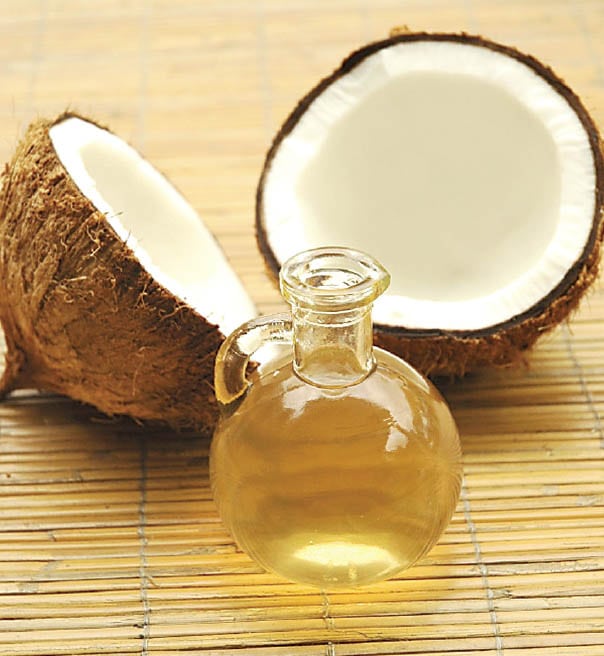How does this headline sound to you?
“Newsbreak! We have no new information about Coconut Oil, but we have a news alert that we still think all saturated fat is bad for everyone.”
That is the real story behind the headline “Coconut oil isn’t healthy. It’s never been healthy” that has grabbed the attention of millions.
The American Heart Association released a statement that, to summarize, says:
- Coconut Oil is a saturated fat.
- Saturated fat can raise LDL.
- High LDL has been associated with increased risk of heart disease.
- Therefore, coconut oil will increase your risk for heart disease
Is there any direct proof that coconut oil is dangerous to our health?
No.
Is there any new evidence directly linking saturated fat to heart disease?
No.
Can we say that because “A” is true above that “D” has to be true?
No way.
But that sure is an attention-grabbing headline to try to connect the dots.
What Evidence?
Don’t get me wrong. It’s not like the AHA is making this up out of thin air. They are basing their opinion on decades of science. Decades of poor quality science. But since that was all the science we had for years, you can see why they came to the conclusion.
LDL cholesterol is an important part of the puzzle when it comes to your health. But it is exactly that. One piece of a very complicated puzzle.
What else does saturated fat do? It raises of HDL. For many, the total cholesterol-to-HDL ratio remains the same. Does that increase the risk of heart disease? There is no good data to support that claim, but likely not.
Let’s look at it another way.
Is an LDL of 150 dangerous? That depends. Are you overweight, sedentary, have a diagnosis of metabolic syndrome, eating a high inflammatory diet, and have a strong family history of heart disease? Then an LDL of 150 likely is dangerous. And you likely also have a low HDL, high triglyceride level (TG), high blood sugar etc.
On the other hand, do you eat real food, mostly vegetables with appropriate portions of animal fats? Do you exercise, manage your stress, and have few if any other cardiovascular risk factors? Are your HDL, TG and glucose levels near ideal? Then that same LDL of 150 is likely not as dangerous for you.
It is misleading to suggest one size fits all.
(For more details on the saturated fat debate, and why the data is not as clear as most seem to think, see our prior article on the topic here.
Unfortunately, the American Heart Association discounts the evidence that shows no association between saturated fat intake and cardiovascular disease. They continue to promote industrial, processed oils over natural fats. Again, rooted in decades of science. Poor quality science.
Both Sides Fail
In essence, the attention-grabbing news flash is simply restating the AHA’s longstanding position. There is nothing new.
To be fair, however, do we have good evidence saying coconut oil is healthy?
No, we do not.
Can we prove saturated fat reduces our heart disease risk?
No.
Can we believe Dr. Axe when he claims that coconut oil has 20 proven health benefits (including curing UTIs, protecting the liver and preventing osteoporosis)?
No way. That’s crazy talk.
If we are going to question the poor-quality evidence against saturated fat, we certainly have to question the horribly inadequate evidence supporting views like Dr. Axe’s.
So, what can we conclude?
We can conclude that nothing new was found for or against coconut oil.
Nothing new was found for or against vegetable oils.
Saturated fats (and by extension coconut oil) are not inherently bad, especially if they are a component of a real-foods, vegetable-based, Mediterranean style of eating.
Vegetable oils are highly processed, pro-inflammatory, fake foods that have evidence both for and against their use.
It’s all so confusing! I know. Trust me, I know.
What Can We Do?
What is someone to do in this sea of contradictory news?
Don’t believe the hype.
Focus on real, minimally processed foods.
When it comes to cooking fats:
- Olive oil is the best for low heat.
- Avocado oil is the best for medium heat.
-
Higher heat gets tricky due to concern over smoke points.
- First, ask yourself, why are you cooking or frying in high heat to begin with? Can you get the same result with lower heat?
- If it’s something you have to do, you can choose from coconut oil, butter, ghee, and vegetable oil. Make you decision based on taste, or even better, mix it up.
Action Item: Do you want to know how cooking oils affect you, as an individual? Get your labs done (at a minimum check LDL, HDL, TG, TC, hsCRP, glucose. For more advanced testing try WellnessFX or other ways to get advanced lipid testing). Then switch to 100% coconut oil as your cooking oil for a month and recheck your labs. Review your labs with someone who has an open mind and looks at more than just your LDL number. LDL does not exist in isolation, but is part of the whole picture. Now you know how it affects you. Individualized medicine beats general guidelines any day.
Thanks for reading.
Bret Scher, MD FACC
Cardiologist, author, founder of Boundless Health
www.DrBretScher.com



